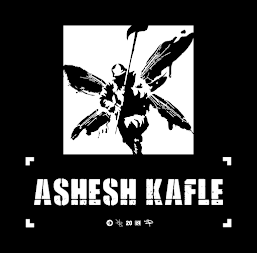2022 was a great year for me. I played sports, enjoyed, travelled places, read books and many more. People who know me also know that they'll always find some literary books in my room. While young, I was not much of a bookish guy but I gradually developed this habit of studying books from secondary school level. I do this because I like it and I enjoy doing it and I think that's a fair reason for it. I am not someone who is genre specific but I generally prefer non fictional science books. I read not many but four to five books in 2022 and here I list my top three books that I read in 2022.
Spoiler alert :- I won't be giving out too much about the books but I will be presenting it in a way that kind of gives a rough idea about the book so you can choose whether to read it or not depending on your interest.
1. The Emperor of All Maladies : A Biography of Cancer by Siddhartha Mukherjee
Siddhartha is an Indian-American Physician and Associate Professor of Medicine at Columbia University. His book 'The Emperor of All Maladies' won the 2011 Pulitzer prize and Mukherjee was honored with Padma Shri in 2014. His other literary works includes 'The Gene', 'The Laws of Medicine', 'The Song of the Cell'.
Mukherjee is a renowned oncologist and his book TEOM is about cancer, which is the emperor of malady. The book begins by highlighting the history of this disease then to the present situation and the future prospect of cancer. The neat thing about the book is that he also adds his experience of working as an oncologist so you can also picture out what goes in the mind of patient and a doctor. The book is a combination of scientific and medical facts, observational findings, social construct which makes it an interesting book. The book may be difficult to follow for anyone with non science or medical background at first but progressively it will get easier. I really think it is fun to read and yes it is a bit long but worth the time.
2. Sapiens - A Brief History of Humankind by Yuval Noah Harari
Yuval is a Historian and a Professor of History at the Hebrew University of Jerusalem. His other literary work includes '21 lessons for the 21st century' and 'Homo Deus'. I've read Homo Deus, it's a visionary book and fun to read. I started reading Sapiens from February and took me nearly a month to complete it.
This book dives into the history of human kind. It's not much a biological book but just a right combination of social and biology. The main goal of this book is to make reader understand that why humans are superior to other animals not just at biological level but also at social level. He divides the books into three main chapters, the cognitive, the scientific and the agricultural revolution and gives a subtle hint of the future for the mankind. He describes the major milestones that occurred in those respective time period. I think the book is fun to read and not very tedious, the vocabularies are not very tough. Anyone even without historical scientific background can enjoy this book.
3. Thinking Fast and Slow by Daniel Kahneman
Daniel is an Israeli-American Psychologist and Professor of Psychology and Public Affairs at Princeton University. He shared the 2002 Nobel prize in Economics with Vernon L. Smith. He is very famous for his work with Amos Tversky on prospect theory, decision making and human rationality and is an expert on this subject.
The book begins by highlighting many mental shortcuts we take while solving problems called heuristics. He then dives into these ideas very subtlety. He describes that our brain is divided into two systems, one and two and much of what we do to solve straightforward looking problems is mediated by system one whereas the system two is involved in more mental effort requiring problems. He also highlights our intuitiveness while solving problems, which isn't the best way to approach things. The book also presents ideas to overcome these heuristics. I think in it's genre this book is a masterpiece. It may be tedious to many because it is quite long but I found it interesting and fun. I recommend anyone who doesn't have interest on economics and psychology to not read the book because you won't be able to complete the book.
Let me know down in the comments, your list of top three books. Thank you for now.



0 Comments